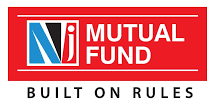Today’s trade environment in Colorado Springs is more complex, volatile, and hostile to American industry. Under Donald Trump, the new U.S. President, geopolitical tensions are growing rapidly in many parts of the world, affecting supply chains and raising the possibility of protectionist trade tariffs.
Strict compliance deadlines and the emergence and evolution of new regulations increase the possibility of substantial fines, penalties, and other expenses when making a mistake. Additionally, further Section 301 tariffs on steel, aluminum, electric vehicles, lithium-ion batteries, and numerous other goods are continuously being implemented, so businesses need to be proactive to stay competitive in this rapidly changing market. If you need help growing your business, contact an Accountant in Colorado Springs, CO.
Ways to reduce cost and risk with foreign-trade zones
By eliminating the tariff barrier that might otherwise make it cheaper to base operations overseas, FTZs provide local businesses with equal opportunity with their offshore rivals.
FTZs can be thought of as duty-free shopping locations. Despite being located on US soil, the materials and products identified in FTZs have not yet “gone through customs” and have not so entered American commerce. Only when materials or goods exit the FTZ and reach the US market are duties paid.
In what ways do FTZs minimize risk and save money?
FTZs allow companies to reduce risk, boost competitiveness, and save money by:
1. Insulating them against trade policy volatility
FTZs protect businesses from the volatile nature of trade policy by allowing them to make tactical choices that reduce expenses and ensure overpayments. They can, for example, decide to lock in the tariff rates at the time products enter the FTZ or when they exit it, enabling them to pay the cheaper rate.
2. Allowing them to manage deployment
Businesses can use FTZs to put off duty payments forever until the items are sold in the United States, which simplifies cash flow. There is no U.S. duty to pay if they are exported to another nation. Manufacturers may also profit from “inverted tariffs,” which enable them to choose to pay duty on component parts or raw materials rather than the final product if doing so lowers the tariff.
3. Facilitating compliance
Because FTZs provide trade compliance professionals with the room and flexibility to handle risk and make accurate sourcing decisions, using them for duty-free warehousing and export also lowers the chance of facing penalties for violating intricate trade regulations.
4. Facilitating inventory optimization
There is no time limit when deciding to export goods to another nation or send them to the U.S. market for sale. Therefore, as they wait for the best moment to put it on the market, companies can hold safety stock for periods of high demand without having to pay duty on it. By filing specific paperwork that complies with FTZ regulations, it is also possible to reduce the charge on scrap or unusable goods.
5. Simplifying supply networks and customs procedures
Many FTZ operators benefit from direct delivery privileges and easier processes to get released from the port of unloading, which allows goods to reach their final location quickly. Additionally, FTZs can provide entry into markets outside of the United States, namely those in Canada and Latin America.
Delivering stability and adaptability in an uncertain world
Although an FTZ is not the best choice for every company, businesses should not disregard the potential benefits or get discouraged by the seeming difficulties of setting them up. Determining the possible advantages and if it is worthwhile can be done with the use of a thorough cost-benefit analysis. The significant cost savings could serve as a strong incentive if only one area where taxes can be postponed, reduced, or abolished can be found.




